| Package include | Link Belt RTC-8050-II Crane Operators Manual |
| Language | English |
| File Format | |
| Total Number of pages | 228 |
| Publication Number | BOOK 1033J6041112LAF |
| Compatible | Windows system / Mac system / Android / IOS / Chrome OS / Any device capable of opening a PDF file |
| Additional Requirement | User must have any software that can open the pdf format |
| Shipping Policy | All of our products are digital and hence supplied immediately upon purchase. Once your purchase is complete, you will have immediate access to the product via a download link |
| Download Size | Total download size: 4 MB |
| Compatible Machine Models | Link Belt RTC-8050-II Crane |
| Sample Preview Yes | Before purchasing the entire pdf handbook, please get sample preview of this pdf manual and ensure it is suitable with your model |
| Sample Preview Link | DOWNLOAD SAMPLE PREVIEW |
Understanding the Link-Belt RTC-8050-II Crane
The Link-Belt RTC-8050-II crane represents a significant advancement in mobile crane engineering, specifically designed for efficiency and performance in various lifting applications. One of its standout features is the all-terrain capability, enabling it to navigate and operate on diverse job sites, from construction areas to industrial plants. The design of the RTC-8050-II emphasizes versatility, allowing it to execute a wide range of lifting tasks, making it a valuable asset for any contractor or operator.
In terms of specifications, the Link-Belt RTC-8050-II boasts a lifting capacity of up to 50 tons, providing ample strength for heavy-duty applications. With its telescopic boom extending up to 140 feet, it is engineered to excel in both height and reach. This combination of lifting power and reach is particularly advantageous in construction environments where height is a critical factor. The crane’s maximum operating speed is another compelling feature, which ensures that tasks can be completed promptly without compromising safety.
Furthermore, the RTC-8050-II integrates advanced technology that enhances operational ease and safety. Features such as the operator-friendly cab, with intuitive controls, allow for quick acclimatization by new operators, reducing the learning curve significantly. Additionally, safety systems, including load monitoring technology and stability assistance, play a crucial role in ensuring safe operation, thereby mitigating risks associated with heavy lifting.
This comprehensive overview showcases the essential performance metrics and functional capabilities of the Link-Belt RTC-8050-II crane. Understanding these facets is paramount for operators to maximize the equipment’s potential, maintain compliance with safety protocols, and ensure efficient project execution. Familiarity with the crane’s manual will further support competent operation, reinforcing skill development in effective crane management.
Key Safety Guidelines and Operating Procedures
The Link-Belt RTC-8050-II crane is equipped with various safety features that require operators to adhere to specific guidelines and procedures to ensure safe operation. Safety is paramount in crane operations to prevent accidents and guarantee the well-being of the operator and crew members. Each operator must conduct pre-operational checks before commencing work. This involves inspecting the crane’s structural integrity, checking for hydraulic fluid leaks, testing brakes, and ensuring all controls are functioning appropriately. These preliminary checks can help identify potential issues that could compromise safety during operation.
Proper setup and positioning of the Link-Belt RTC-8050-II are critical elements that contribute to safe crane operation. The operator must evaluate the worksite and establish a stable base to support the crane’s weight and dynamic loads. It’s essential to assess the ground conditions and utilize outrigger pads to distribute the load evenly. Furthermore, operators must be cognizant of the crane’s operating radius and adhere to the recommended load charts as indicated in the operator’s manual. This ensures that loads are within the crane’s capacities, minimizing the risk of tipping or collapse.
When handling loads, operators are advised to utilize proper rigging techniques. This includes selecting the appropriate rigging equipment, ensuring that all connections are secure, and maintaining clear communication with crew members. Operators should also be aware of the potential effects of wind and weather conditions on load stability and crane performance. Following all emergency protocols outlined in the Link-Belt RTC-8050-II manual is essential, enabling operators to respond effectively to any unforeseen situations. The combination of vigilant monitoring, adherence to safety guidelines, and thorough knowledge of operating procedures culminates in a safer work environment.

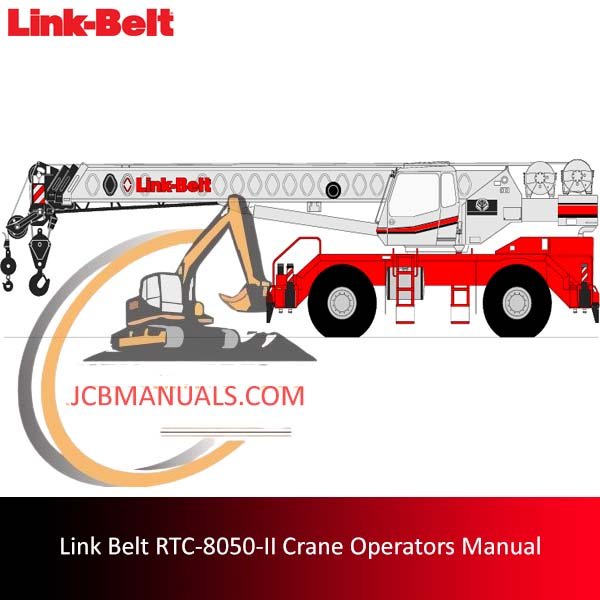
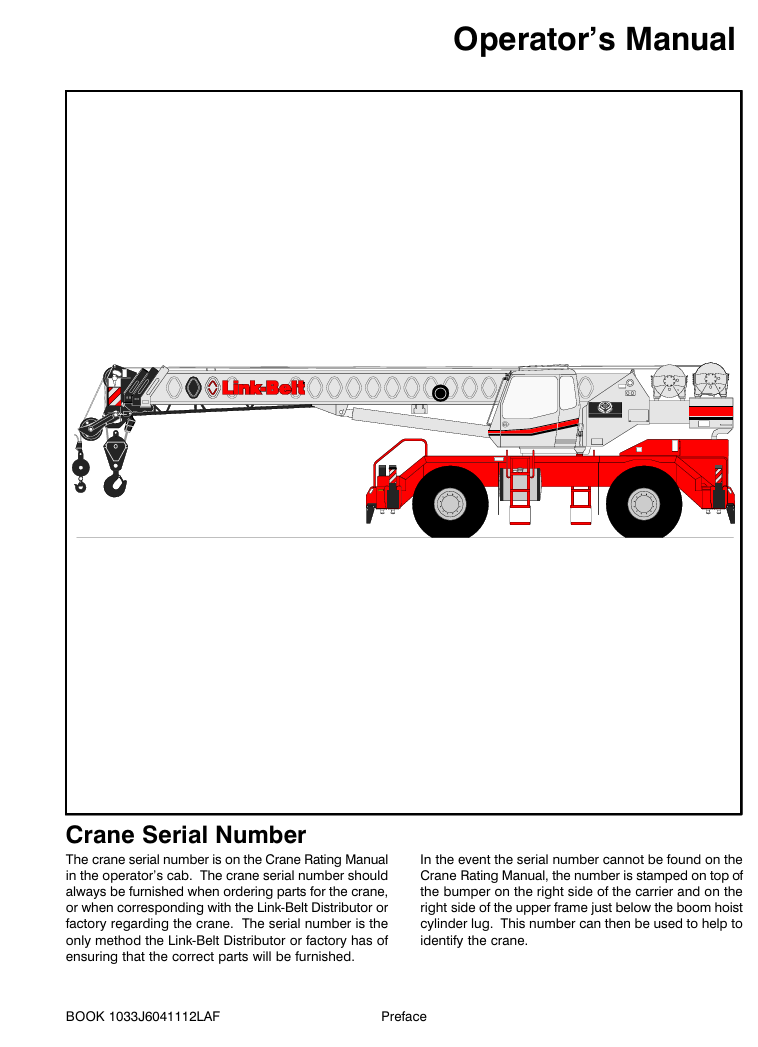
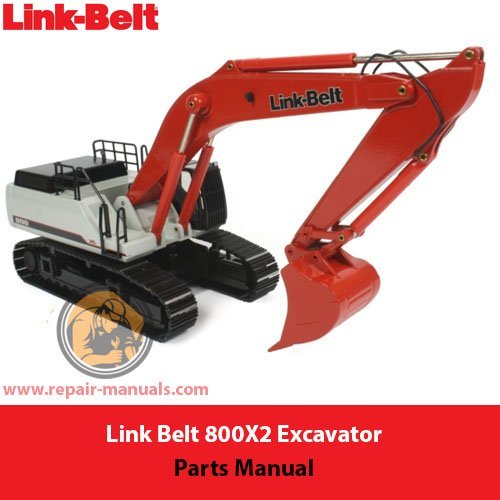
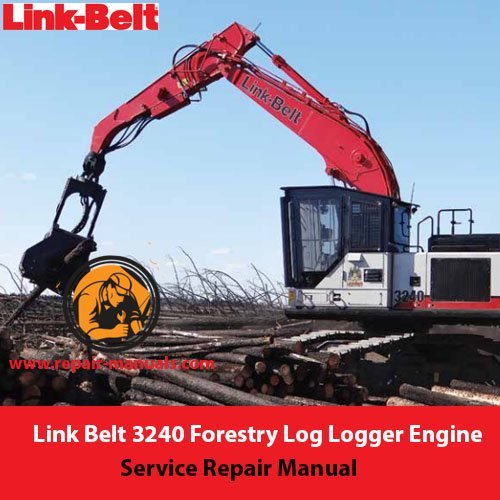
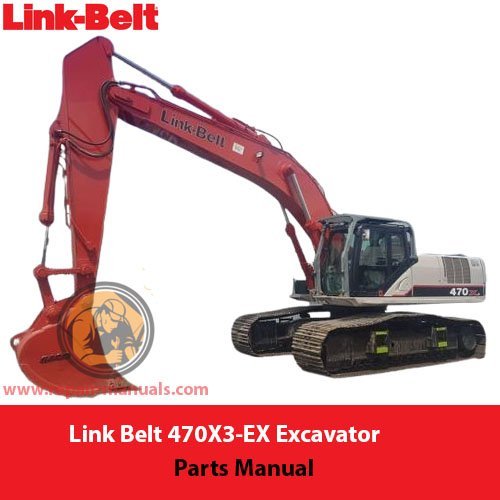

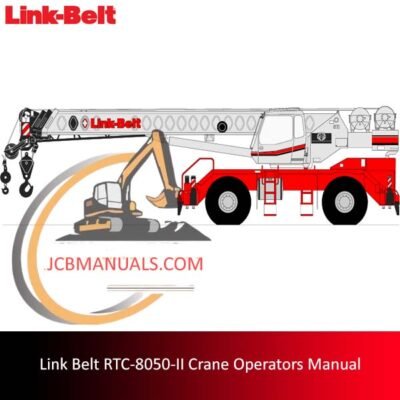
Be the first to review “Link Belt RTC-8050-II Crane Operators Manual”